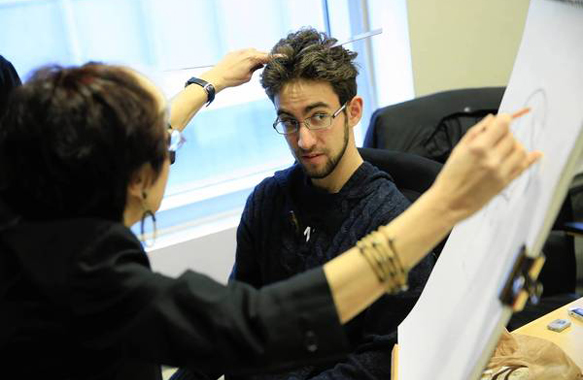Photograph; Stan Gutiontov, a student at Northwestern University’s Feinberg/Chicago Tribune
By Times Editorial | Originally Published at Tampa Bay Times. Friday, June 21, 2013 5:30am
The humanities and social sciences have been under attack by Gov. Rick Scott and other politicians who are insisting on a more direct connection between university studies and specific jobs. Now an encouraging new report to Congress provides a path to promoting the humanities, such as philosophy and literature, as critical components in higher education and in creating well-rounded citizens.
Called “The Heart of the Matter,” the American Academy of Arts and Sciences’ report outlines recommendations from kindergarten through college and beyond. It sets three worthy goals for the humanities: provide the knowledge, skills and understanding Americans need in a modern democracy; foster innovation and competition; and focus on global leadership.
Career-oriented fields in the hard sciences are indispensable. But their importance does not negate the humanities, which are vital in honing skills of critical thought, reason and debate. Humanities provide a framework to understand the world, educating students broadly about civics, leadership, language and more. The report suggests a new program to create a fleet of “master teachers” who are well-trained to advance education in the humanities, similar to today’s master teacher corps geared toward science, technology, engineering and math fields. A renewed focus on “qualities of mind” would stress inquisitiveness, inventiveness, critical analysis and the communication skills that are so essential in all disciplines.
Less than a quarter of eighth- and 12th-grade students are proficient in reading, writing and civics, according to the National Assessment of Educational Progress test. Yet as the economy faltered, humanities budgets were slashed. Getting the fragmented curriculum back on track requires renewed attention to the basics of literacy, civics and history. The report calls for bridging the gap between primary, secondary and higher education by uniting teachers through conversation, which could bring more cohesion to the system.
Other recommendations underscore the importance — and feasibility — of major changes in the approach toward teaching humanities at all levels. Increased online resources would help bolster learning for all students, especially the disadvantaged. Stronger qualifications for teachers would boost proficiency in individual subjects and increase the likelihood that a teacher has a degree in his or her discipline. More funding for international studies would teach students to think globally. To fund humanities research, the report calls for investment from both federal and philanthropic sources.
Humanities complement the STEM fields, and in today’s fast-paced world, it’s more crucial than ever to have the broad knowledge base they provide. The report says more than half of employers call a liberal education very important. Scott and other politicians so intent on linking higher education directly to jobs should keep that in mind the next time they question the value of an anthropology course.
Editorial: A complete education includes humanities 06/21/13 [Last modified: Friday, June 21, 2013 5:35pm]












Leave A Comment